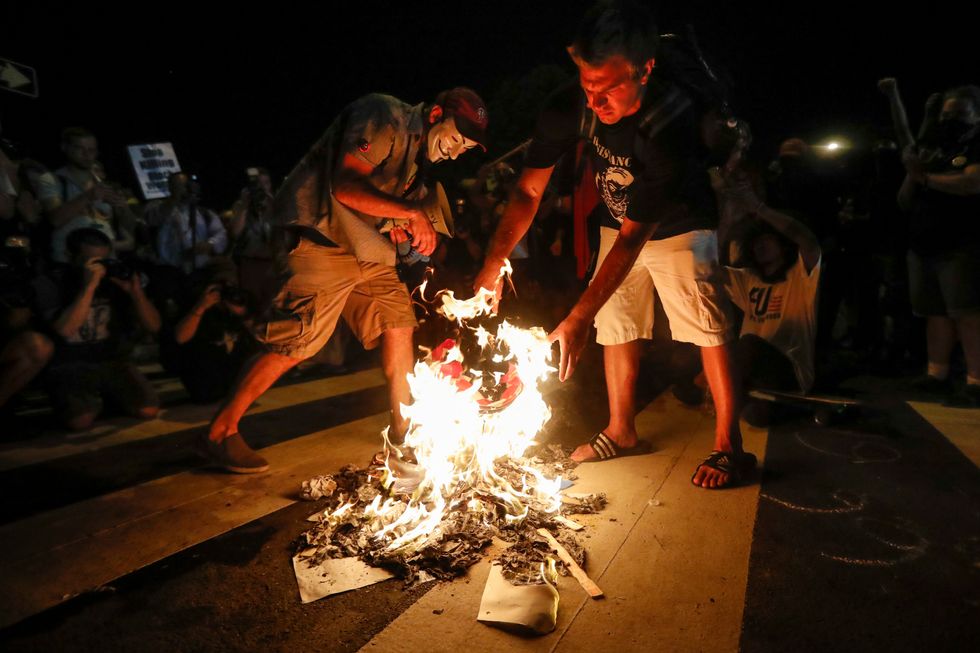
Demonstrators burn an American flag during a protest in Philadelphia (AP/John Minchillo)

President-elect Donald Trump's Twitter call to punish people who burn the U.S. flag goes against two amendments to the U.S. Constitution, the Washington Post's editorial board argued Tuesday.
Trump said in a tweet early Tuesday morning that no one should be allowed to burn the U.S. flag without "consequences," such as the loss of their U.S. citizenship or one year in jail.
Many have pointed out that the call goes against current U.S. law.
"The Supreme Court ruled in 1989 that the First Amendment protects burning the flag in protest," the Post's editorial board wrote. "The high court ruled in 1967 that the 14th Amendment not only grants U.S. citizenship to 'all persons born or naturalized' in this country; it also forbids the government from taking citizenship away from them."
But popular opinion sides with Trump: Forty-eight of the U.S. states and Congress had outlawed flag-burning before the Supreme Court's 1989 ruling, the Post reported.
WaPo even pointed to the late Supreme Court Justice Antonin Scalia as an opponent of banning flag-burning.
But burning-banners’ arguments ultimately founder on the rock of the First Amendment, which, if it means anything, means that the people have the right to express their views through the widest possible range of nonviolent means, even — or, perhaps, especially — those views that offend most deeply. It is ironic that a man elected on a platform of opposition to hypersensitive “political correctness” would embrace a flag-burning ban. Another irony: among those who understood the democratic necessity of protecting even the most unpopular expression was Justice Antonin Scalia, whom Mr. Trump purports to admire, and whose successor he will soon nominate. Many fellow conservatives disliked it, but Scalia often cited his vote to protect flag-burning as an example of how the Constitution limited his power, and that of all other government officials, to stamp out ideas they personally despised.